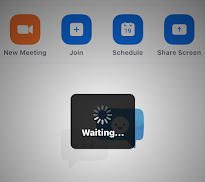Rock Of Ages
Augustus Toplady was a young English minister and writer in the 1700s. While traveling through the rugged countryside near Cheddar Gorge, he was surprised by a torrent of hard rain and strong winds. In his weary state, Toplady found shelter under a rocky overhang. There, in the storm he wrote this hymn. He saw his situation as God providing just as He did for the world with the Savior.
The work was first introduced into the world in 1776, when Toplady included it in an article he edited for The Gospel Magazine. He also compared England's national debt to our own merits satisfying the justice of God in the same article.
Toplady died of tuberculosis at the age of 38, proclaiming "My prayers are now all converted into praise."
Great Is Thy Faithfulness
Unlike many other great hymns of the faith, this hymn was not written out of any tragic or dramatic experience, but out of everyday routine. Kentucky-born Thomas Chisholm became a school teacher in 1882, but this was just the start of his several career paths. He later entered the newspaper business before being ordained as a pastor. Health reasons forced him to leave the ministry and after recuperation, he became an insurance agent.
Throughout his life, however, two things remained consistent: his faith and his love of poetry. In 1923, he sent a collection of his poems to a musician and good friend named William Runyan. Runyan also worked for a hymnal publishing company. William was especially struck by Chisholm's poem, “Great Is Thy Faithfulness”. About this experience, he said "This particular poem held such an appeal that I prayed most earnestly that my tune might carry over its message in a worthy way."
The hymn took a while to catch on with churches until Billy Graham included it in his crusades in England, but is now one of England's most popular. Based on Lamentations 3:22-23, the poem reflects Chisholm's own need for God's support, love, and faithfulness, both financially and spiritually.
There Is A Fountain
William Cowper suffered from depression and anxiety his entire life, but still found hope in Jesus's sin-cleansing blood. As a young man, he was pressured to go into law, but suffered a mental breakdown before his final exams and was admitted into an asylum.
In 1764, he realized his need for a savior and wrote this hymn based on Zechariah 13:1. Later in life, he became friends with the great hymn writer, John Newton and together, composed a collection of 349 hymns known as the Olney Hymns.
The Hymn Project
On July 23, 2020, my dad and I recorded the six hymns I have now highlighted in these two blogs. It features my vocals and guitar and my dad on cajon and is available on iTunes, Spotify, Amazon Music, and YouTube.
Bibliography
Christianity.com. 2010. Toplady's Song In The Storm. [online] Available at: <https://www.christianity.com/church/church-history/timeline/1701-1800/topladys-song-in-the-storm-11630289.html> [Accessed 29 August 2020].
Wyse, E., 2014. The History Of "Great Is Thy Faithfulness". [online] Lifeway.com. Available at: <https://www.lifeway.com/en/articles/the-history-of-great-is-thy-faithfulness> [Accessed 29 August 2020].
College of The Open Bible. n.d. Hymn History There Is A Fountain. [online] Available at: <https://www.collegeoftheopenbible.com/hymn-history-there-is-a-fountain.html> [Accessed 29 August 2020].








